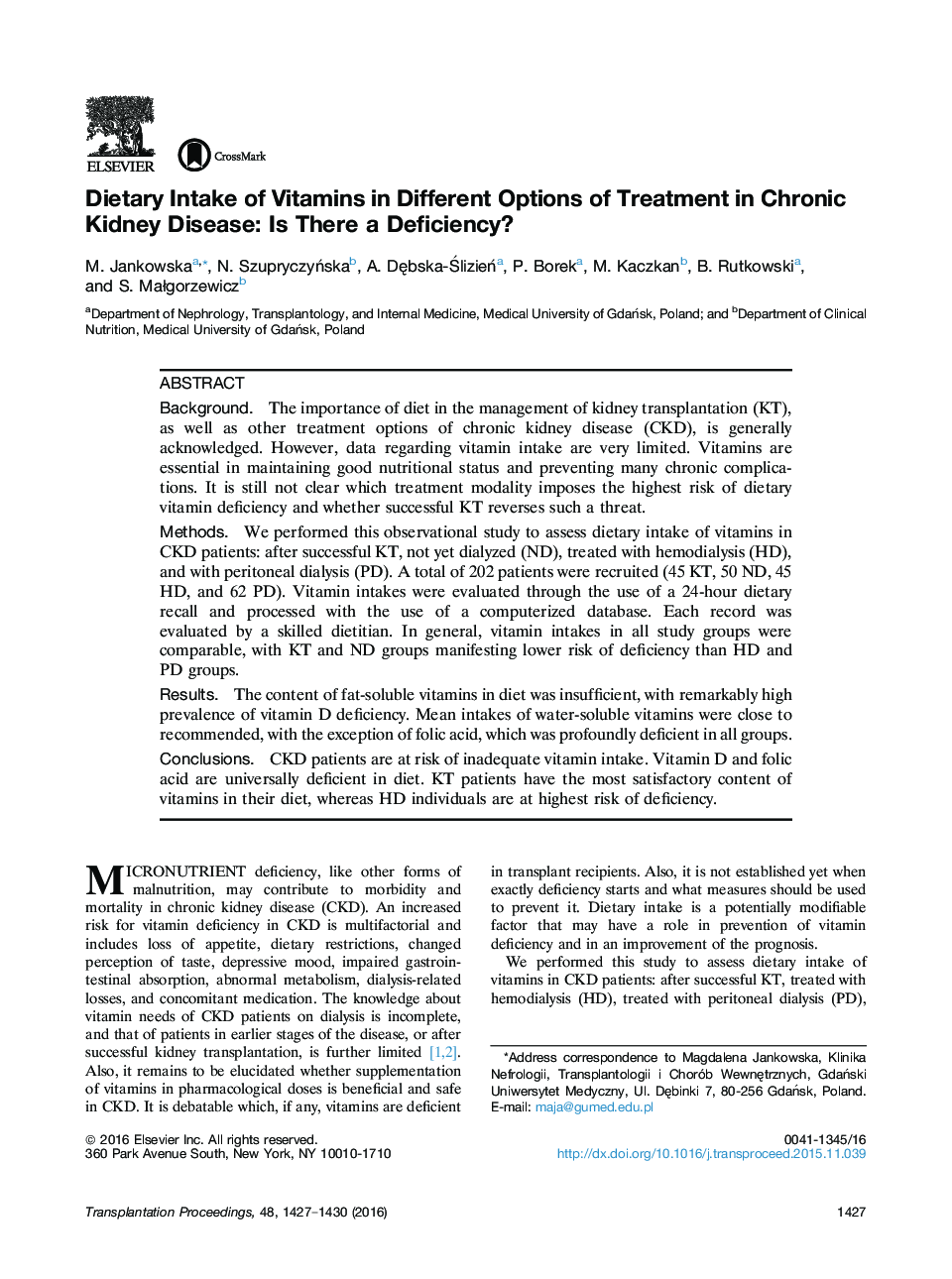| Article ID | Journal | Published Year | Pages | File Type |
|---|---|---|---|---|
| 4256047 | Transplantation Proceedings | 2016 | 4 Pages |
•Little is known on dietary content of micronutrients in different modalities of RRT•Our report confirms that all CKD patients are at risk of inadequate vitamin intake•Universally deficient vitamins are vitamin D and folic acid•Kidney transplant patients have the most satisfactory content of vitamins in their diet•Diets of haemodialysis individuals are the most deficient
BackgroundThe importance of diet in the management of kidney transplantation (KT), as well as other treatment options of chronic kidney disease (CKD), is generally acknowledged. However, data regarding vitamin intake are very limited. Vitamins are essential in maintaining good nutritional status and preventing many chronic complications. It is still not clear which treatment modality imposes the highest risk of dietary vitamin deficiency and whether successful KT reverses such a threat.MethodsWe performed this observational study to assess dietary intake of vitamins in CKD patients: after successful KT, not yet dialyzed (ND), treated with hemodialysis (HD), and with peritoneal dialysis (PD). A total of 202 patients were recruited (45 KT, 50 ND, 45 HD, and 62 PD). Vitamin intakes were evaluated through the use of a 24-hour dietary recall and processed with the use of a computerized database. Each record was evaluated by a skilled dietitian. In general, vitamin intakes in all study groups were comparable, with KT and ND groups manifesting lower risk of deficiency than HD and PD groups.ResultsThe content of fat-soluble vitamins in diet was insufficient, with remarkably high prevalence of vitamin D deficiency. Mean intakes of water-soluble vitamins were close to recommended, with the exception of folic acid, which was profoundly deficient in all groups.ConclusionsCKD patients are at risk of inadequate vitamin intake. Vitamin D and folic acid are universally deficient in diet. KT patients have the most satisfactory content of vitamins in their diet, whereas HD individuals are at highest risk of deficiency.
